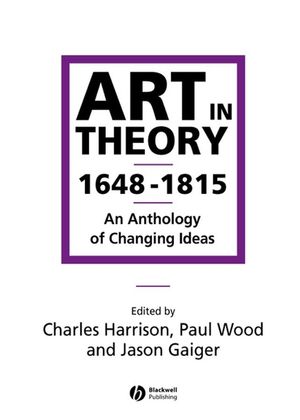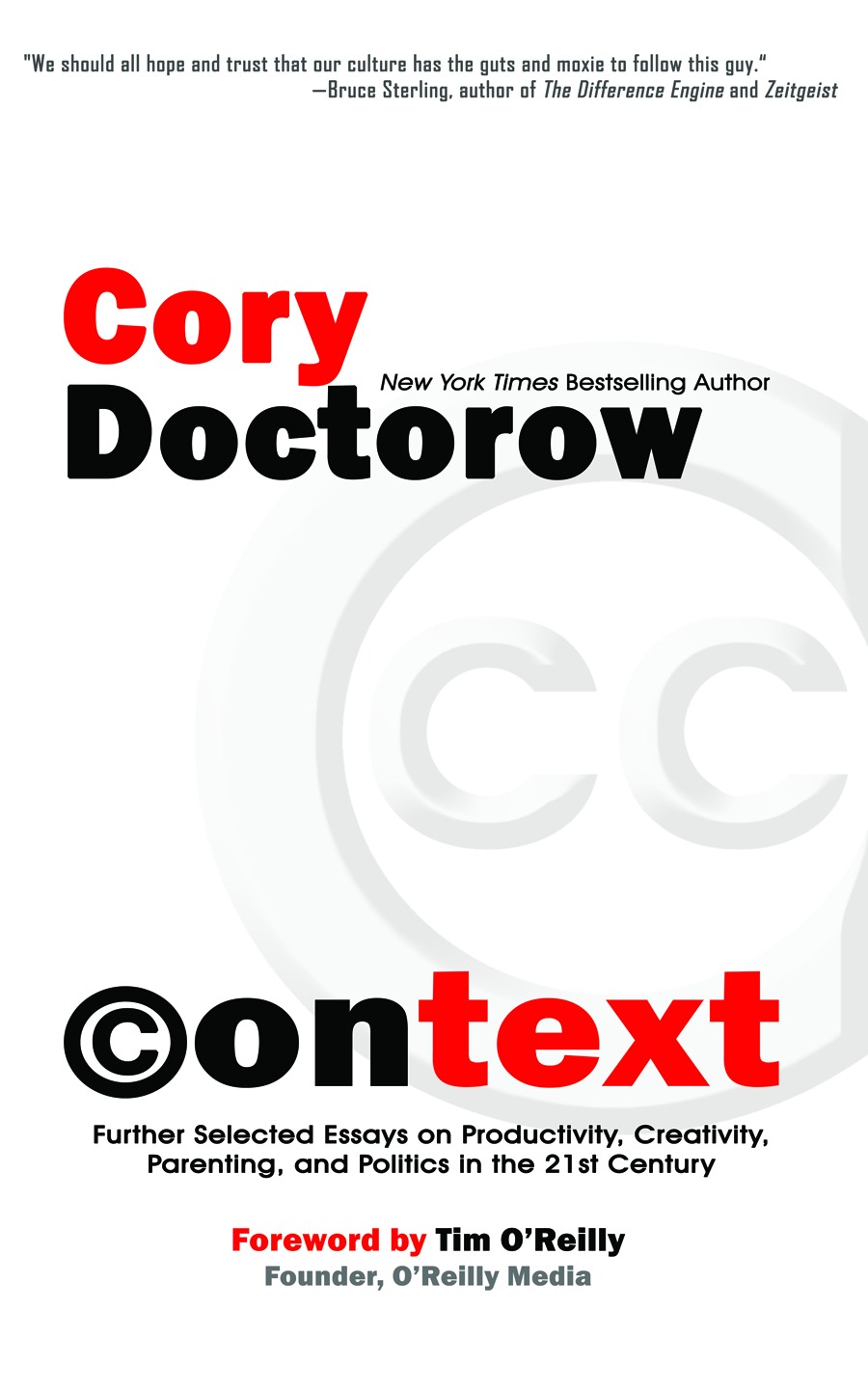Charles Harrison, Paul Wood, Jason Gaiger (eds.): Art in Theory 1648-1815: An Anthology of Changing Ideas (2001)
Filed under book | Tags: · 1600s, 1700s, 1800s, art, art criticism, art history, art theory

“Art in Theory (1648-1815) provides a wide-ranging and comprehensive collection of documents on the theory of art from the founding of the French Academy until the end of the Napoleonic Wars. Like its companion volumes, Art in Theory (1815-1900) and Art in Theory (1900-1990), its primary aim is to provide students and teachers with the documentary material for informed and up-to-date study. Its 240 texts, clear principles of organization and considerable editorial content offer a vivid and indispensable introduction to the art of the early modern period.
Harrison, Wood and Gaiger have collected writing by artists, critics, philosophers, literary figures and administrators of the arts, some reprinted in their entirety, others excerpted from longer works. A wealth of material from French, German, Italian, Spanish, Dutch and Latin sources is also provided, including many new translations.
Among the major themes treated are early arguments over the relative merits of ancient and modern art, debates between the advocates of form and color, the beginnings of modern art criticism in reviews of the Salon, art and politics during the French Revolution, the rise of landscape painting, and the artistic theories of Romanticism and Neo-classicism.
Each section is prefaced by an essay that situates the ideas of the period in their historical context, while relating theoretical concerns and debates to developments in the practice of art. Each individual text is also accompanied by a short introduction. An extensive bibliography and full index are provided.”
Publisher Blackwell, 2001
ISBN 9780631200642
1220 pages
Reviews: Richard Woodfield (Journal of Aesthetics and Art Criticism, 2003), Patricia Railing (Art Book, 2004).
PDF (updated on 2012-7-18)
Comment (0)Markus Miessen: The Nightmare of Participation: Crossbench Praxis as A Mode of Criticality (2010)
Filed under book | Tags: · art criticism, collaboration, democracy, participation

“Welcome to Harmonistan! Over the last decade, the term ‘participation’ has become increasingly overused. When everyone has been turned into a participant, the often uncritical, innocent, and romantic use of the term has become frightening. Supported by a repeatedly nostalgic veneer of worthiness, phony solidarity, and political correctness, participation has become the default of politicians withdrawing from responsibility. Similar to the notion of an independent politician dissociated from a specific party, this third part of Miessen’s “Participation” trilogy encourages the role of what he calls the “crossbench practitioner,” an “uninterested outsider” and “uncalled participator” who is not limited by existing protocols, and who enters the arena with nothing but creative intellect and the will to generate change.
Miessen argues for an urgent inversion of participation, a model beyond modes of consensus. Instead of reading participation as the charitable savior of political struggle, Miessen candidly reflects on the limits and traps of its real motivations. Rather than breading the next generation of consensual facilitators and mediators, he argues for conflict as an enabling, instead of disabling, force. The book calls for a format of conflictual participation—no longer a process by which others are invited “in,” but a means of acting without mandate, as uninvited irritant: a forced entry into fields of knowledge that arguably benefit from exterior thinking. Sometimes, democracy has to be avoided at all costs.”
Includes an introduction by Eyal Weizman, a conversation with Chantal Mouffe, an interview by Hans Ulrich Obrist, and post-scripts by Bassam El Baroni, Jeremy Beaudry, and Carson Chan.
Publisher Sternberg Press, 2010
ISBN 1934105074, 9781934105078
304 pages
PDF (updated on 2012-8-6)
Comment (0)Cory Doctorow: Context: Further Selected Essays on Productivity, Creativity, Parenting, and Politics in the 21st Century (2011)
Filed under book | Tags: · censorship, copyright, creativity, intellectual property, internet, politics, technology

One of the internet’s most celebrated hi-tech culture mavens returns with this second collection of essays and polemics. Discussing complex topics in an accessible manner, Cory Doctorow’s visions of a future where artists have full freedom of expression is tempered with his understanding that creators need to benefit from their own creations. From extolling the Etsy makerverse to excoriating Apple for dumbing-down technology while creating an information monopoly, each unique piece is brief, witty, and at the cutting edge of tech. Now a stay-at-home dad as well as an international activist, Doctorow writes as eloquently about creating internet, real-time theater with his daughter as he does in lambasting the corporations that want to limit and profit from inherent intellectual freedoms.
Foreword by Tim O’Reilly
Publisher Tachyon Books, October 2011
ISBN 978-1-61696-048-3
Licensed under a Creative Commons Attribution-Noncommercial-ShareAlike license

